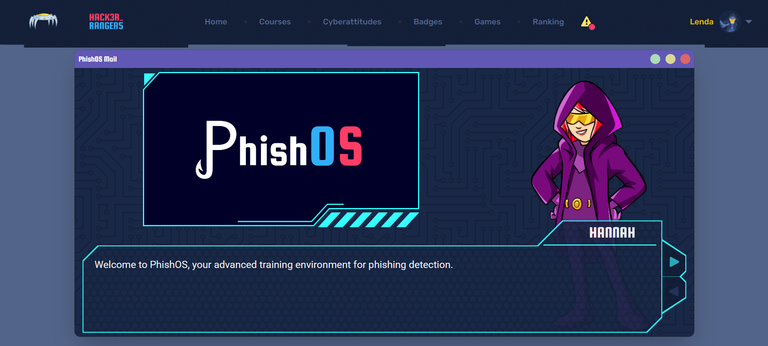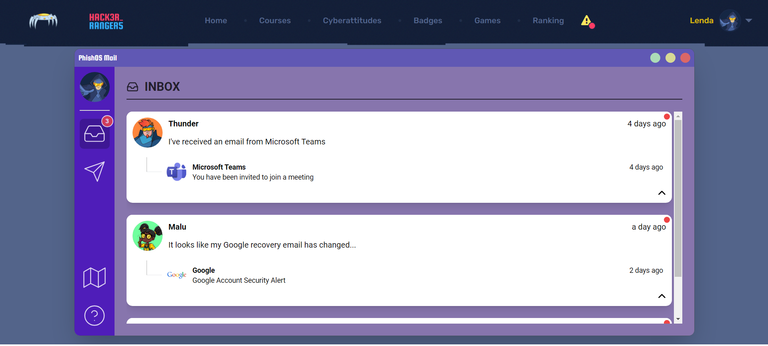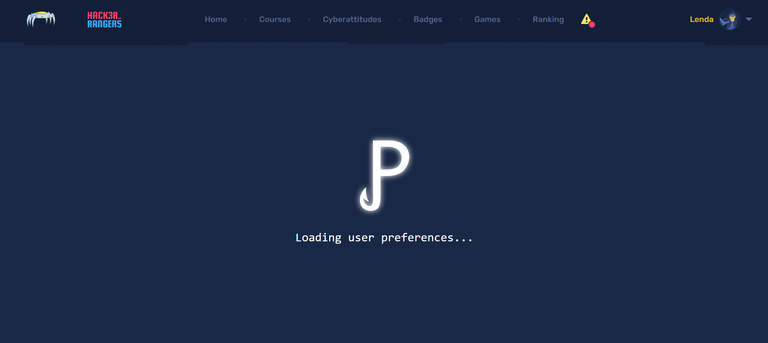Introducing PhishOS, Hacker Rangers' Latest Phishing Awareness Game
Phishing… Is it Still a Problem?
Phishing messages remain one of the top security threats to organizations worldwide. As the most prevalent attack vector today¹, phishing incurs billions in costs to companies every year.²
Despite advancements in technological safeguards and email filters, these measures are not foolproof and cannot block all phishing attempts. This makes employees the crucial last line of defense against cyberattacks.
Recognizing this, many organizations emphasize security awareness training that focuses on phishing, equipping employees to identify and respond to these threats effectively in real-world scenarios.
Are Users Really Recognizing Phishing?
When conducting a phishing simulation, an essential question arises: how can you be sure that employees are genuinely recognizing the dangers of a malicious message?
Most cybersecurity awareness professionals assess a company's vulnerability by analyzing the click rates on simulated phishing emails—in other words, evaluating how many users clicked on the malicious message compared to the total number of users who received the simulated scams.
But is this metric truly effective? Are your users actually identifying phishing attempts, or are they simply adopting a defensive stance and choosing not to click on anything?
Click rates provide a limited view of the phishing problem within your organization. They offer only a single perspective—the employees who clicked—without reflecting the true behavior of all users.
Is Punishment The Best Approach?
Employees who didn’t fall for a simulated scam may not have necessarily recognized it as a phishing attempt. Studies show that only 3% of users report phishing emails to management, indicating that many employees might be unaware of phishing attempts or hesitate to report them.
Traditional phishing training can inadvertently intimidate users, as the messages often arrive unexpectedly, catching them off guard. This can lead to reluctance in engaging with the training, due to fear of punishment or embarrassment if they mistakenly report a legitimate message as phishing. This fear can result in inaction, causing employees to disengage from security training—and other company initiatives!
Check The Box Training
When phishing training is based on a “check-the-box” approach—focusing solely on whether users clicked or did not click—a comprehensive understanding of cybersecurity awareness within your organization is compromised. This limited perspective does not foster a resilient security posture, which requires proactive and engaged users.
Phishing emails vary in difficulty, and traditional training often fails to account for this variability. Some emails are easy to identify, while others are more sophisticated. Without understanding why a user fell for a simulated scam and clicked the email, you cannot effectively address the root causes.
Were they unsure about specific signs of phishing? Did they feel pressured? Did they lack understanding of the potential consequences? If you do not identify the specific reasons behind their actions, you cannot focus your efforts on what truly matters.
Hacker Rangers PhishOS: a game for phishing awareness
Considering this scenario, Hacker Rangers, a leader in gamified security awareness and positive organizational culture, is proud to introduce its latest innovation: Hacker Rangers PhishOS—a cutting-edge phishing detection game.
Hacker Rangers PhishOS was meticulously developed using the NIST Phish Scale, ensuring that it meets the highest standards in phishing detection. This game is designed to engage your users in a practical challenge, helping them differentiate between legitimate emails and sophisticated phishing threats.
When identifying an email as phishing, users need to pinpoint the specific cues that led them to classify it as malicious. Was it the sense of urgency conveyed by the email? A missing brand logo? Or perhaps insufficient information about the sender? Each of the 36 indicators has been carefully designed based on all the cues identified by NIST as essential for detecting phishing attempts.

Importance of context: with gamification, it is literally all fun and games
Phishing simulations frequently take users by surprise, which can lead to confusion and anxiety.
Hacker Rangers PhishOS transforms phishing training into an engaging game where users step into the role of a cyberhero, tasked with assisting a Ranger in identifying whether an email is a phishing attempt or not.
By framing phishing training within a context that is both interactive and purposeful, users are placed in a controlled, simulated environment specifically designed for educational purposes. This approach helps reduce anxiety and encourages users to apply their true understanding of phishing without the pressure of real-world consequences.
The best part? The game provides a comprehensive understanding of all users' actions, as they need to point out what they identified as red flags. This ensures a deeper and more complete analysis of phishing awareness within your organization, allowing for more effective measurement and analysis of employee behavior.
Overcoming branding challenges
With PhishOS, your organization can bypass the challenges associated with using real brands in phishing simulations.
In traditional phishing campaigns, utilizing real brand names is crucial for creating realistic scenarios, but it can also pose significant issues. Such simulations might inadvertently damage a brand’s reputation or even infringe on trademark laws.
PhishOS navigates these challenges by offering a controlled simulation environment. By incorporating phishing simulations into an engaging game format, users understand that the exercise is purely educational. This allows you to use brand names freely.

Try PhishOS for free for 15 days!
Hacker Rangers is a fully gamified security awareness training platform that has empowered over 1,000,000 users to enhance their awareness and adopt safe digital habits in the organizational environment.
Visit hackerrangers.com and try PhishOS for free for 15 days!

